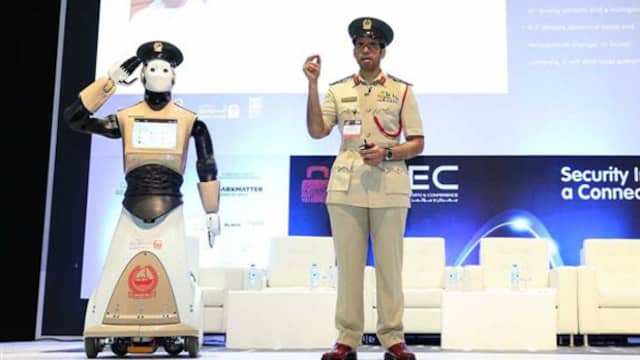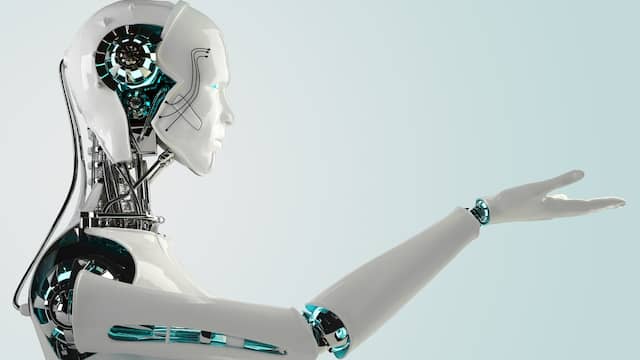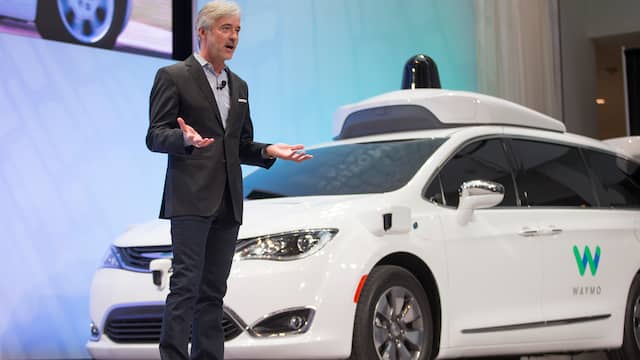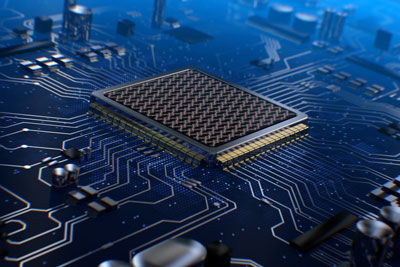An Improved AlphaGo Wins Its First Game Against the World’s Top Go Player
In het artikel "Godlike" Artificial Intelligence Just Officially Beat The World's #1 Go Player staat nog :By Cade Metz, May 23 2017
In the first game of his match with AlphaGo—the Go-playing machine built by researchers at Google’s DeepMind lab—Chinese grandmaster Ke Jie opened with a move straight from the playbook of his artificially intelligent opponent. He aimed to beat AlphaGo with its own unusual style of play. But the gambit didn’t work out. After four hours and fifteen minutes of play, the 19-year-old grandmaster resigned, and AlphaGo grabbed a 1–0 lead in this best-of-three match.
Last year, in South Korea, AlphaGo topped the Korean grandmaster Lee Sedol, becoming the first machine to beat a professional Go player—a feat that most AI researchers believed was still years away, given the extreme complexity of the ancient Eastern game. Now, here in Wuzhen, China, AlphaGo is challenging Ke Jie, the current world number one.
According to Demis Hassabis, the CEO and founder of DeepMind, this time out the machine is driven by a new and more powerful architecture. It can now learn the game almost entirely from play against itself, relying less on data generated by humans. In theory, this means DeepMind’s technology can more easily learn any task.
1-0
In January, under the pseudonym “Master,” the AlphaGo’s new incarnation played several of the world’s top players in a series of online matches, including Ke Jie, and it won all 60 of its completed contests.
Today’s face-off against Ke Jie continues that streak. As the match began, Ke Jie chose to play black, meaning he would make the first move, and he opened with what’s called a “3–3 point” strategy—a rather unusual opening that AlphaGo played regularly during the Master series in January. “He has changed since the Master games six months ago,” match commentator Michael Redmond said of Ke Jie. “He is using a lot of Master’s moves.”
Indeed, since the Master series, Ke Jie has regularly used this kind of opening during matches with other grandmasters. “The influence of Alpha has been widespread,” Ke Jie said during the post-game press conference, through an interpreter. For Hassabis, Ke Jie’s adjustments provide further evidence that AlphaGo has changed the way grandmasters play the ancient game—and an indication of how artificial intelligence can augment what humans do, not just eclipse them.
Still, AlphaGo responded well to Ke Jie’s opening. It took hold of the match much sooner than even the DeepMind team expected. Just three and a half hours into the game—which was slated for six or more—AlphaGo dominated so much of the board that match commentators gave Ke Jie little chance of clawing his way back into the match. Less than an hour later, he resigned.
“What’s exciting is that AlphaGo just keeps getting better,” said commentator Hajin Lee. “It was already so good before.”
Beyond Go
Given AlphaGo’s strong showing during the “Master series,” few expect Ke Jie to win this week’s match. But the contest provides an opportunity to gauge the continued progress of AlphaGo and, indeed, AI in general. Underpinned by machine learning techniques that are already reinventing everything from internet services to health care to robotics, AlphaGo serves as a proxy for the future of artificial intelligence.
Hassabis underscored this notion as the first game began, revealing that AlphaGo’s new architecture was better-suited to tasks outside the world of games. Among other things, he said, the system could help accelerate the progress of scientific research, and significantly improve the efficiency of national power grids.
For Google, the match doubles as an enormous PR opportunity, as the company angles to offer its online services in China. Though millions of phones in the country run Google’s Android operating system, local government restrictions prevent the tech giant from offering official access to online services such as Gmail and its core search product. But Google has said it hopes to offer its services here in the future. As reporters arrived to cover the match, they received, among other things, a flyer describing Google’s Translate app—in both English and Chinese. Google Translate is now driven by deep neural networks, a breed of machine learning that also feeds AlphaGo.
If AlphaGo’s showing so far is any indication, the revamped architecture really has paid off. During the first game, the upgrade was apparent to Ke Jie. “AlphaGo is a completely different player,” he said after the game. “It is like a god of a Go player.”
Dus ten opzichte van ongeveer een jaar geleden speelt AlphaGo veel intelligenter ondanks dat het maar een tiende van het computervermogen gebruikt. Als kunstmatige intelligentie ieder jaar zulke reuzensprongen maakt (of zelfs nóg grotere sprongen), hoe lang duurt het dan nog voordat kunstmatige intelligentie de mens op alle denkbare terreinen gaat overvleugelen?The latest win, played in the Chinese city of Wuzhen on Tuesday, cements AlphaGo's steady rise to the peak of the professional Go-playing circuit, after celebrated victories over European Go champion Fan Hui in 2015 and South Korean grandmaster Lee Sedol last year.
After those decisive tournaments, won by AlphaGo 5-0 and 4-1 respectively, it's possible Ke had even less a chance of beating the system than his human predecessors. DeepMind's developers say the tweaked and revamped AI is now more efficient than ever, using 10 times less computational power than the algorithm that trounced Sedol in 2016.
En hoe denkt de beste Go-speler ter wereld onder de mensen er zélf over?
In Taking his last stand against AI, humanity’s best Go player says the robots have already won staat :
But the odds for humans aren’t looking good, according to Ke Jie himself. On the eve of his first game against AlphaGo, Ke took to China’s Twitter-like Weibo to announce (link in Chinese) that the three games this week will be the last match he’ll play against robots.
“I believe the future belongs to AI,” he said.












